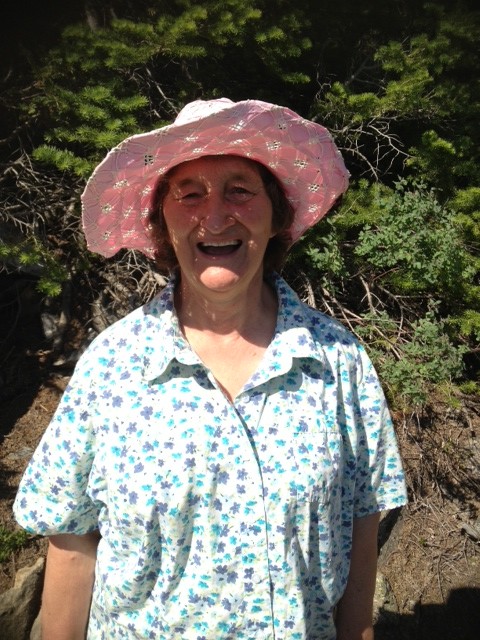
For some writing that I have ahead of me, I’ve been researching how to make good use of a refuge that you’ve created from the outside world. When bad things are happening out there and they’ve torn you apart, how do you re-group enough to go back out and face them all over again?
For that project, I won’t be writing directly about the pandemic, but some of what I’ve unearthed also speaks to our efforts to recover our internal focus, sanity and productive drives while trying to stay safe from the risks outside.
We’re working more at home, seeing fewer people and keeping our distance from almost everyone else. Health threats have made living and working an isolating experience. There’s more time alone to stew on our feelings than when our routines kept us busier and more people would take us out of ourselves.
The disorder ot the outside world leaks in too. It’s harder to make even small things—like getting a haircut or going to the gym—happen, or to manage whatever confronts us after we leave home. Moreover, today seems a lot like yesterday and the day before that, the drift of hours and days making it harder to feel grounded in time or able to put one foot in front of another. As panic, despair or hopelessness sets in, it can feel like the disorder outside is living inside too, that the shelter from the storm we thought we had isn’t protecting us any more.
Several years ago, Arthur Kleinman was in “the slow motion calamity” of caring for his wife Joan during her 10-year struggle with Alzheimer’s disease. To keep his feelings of isolation and disorder at bay, Kleinman (who’s a Harvard psychiatrist and anthropologist) brought new joys into the most ordinary routines of the life that they shared by focusing more attention on how they were doing them.
[I]ntensifying attention [on] mundane tasks, we filled those moments with passion and awareness. Exercise, cooking, eating, reading, work and even watching the news became more deliberate components of our daily ritual, giving us happy moments to look forward to, creating a mood of anticipation rather than paralysis. In a time of randomness and uncertainty, it made us feel proactive instead of reactive.
They created together a sustaining home life that enabled both the caregiving that went on there and his outside endeavors as a teacher and doctor.
Now living alone but still hard at work, Kleinman continues to conduct his ordinary routines with attention to their details, like preparing “a proper meal” for lunch everyday and taking the time that’s needed to enjoy it. He called the essay he wrote about those routines “How Rituals and Focus Can Turn Isolation Into a Time for Growth” because repeating these rituals every day has brought him a kind of “joy” that he’d never known before.
Charles Eisenstein takes Kleinman’s ideas about attention to our rituals both deeper and wider.
In “Every Act a Ceremony,“ Eisenstein notes that religious people and indigenous communities in many parts of the world view each of their daily actions as important and meaningful. As a result, their individual actions regularly unite “the ceremonial with the pragmatic.” Think of the daily routines in monastic communities that range from praying and singing at set times throughout the day, to rituals around farming, fishing and food preparation, and on to marking the seasons or “feast days” in suitable ways. Making yourself susceptible to discovering new ways to celebrate the practical details of life and work can make the ordinary feel extraordinary.
It’s preparing and then taking the time to enjoy a sit-down lunch everyday, or using a special cup for the first coffee you drink each morning. One says: valuing the food you’ve selected, preparing it carefully and well, setting it out in a pleasing way and taking the time to savor your efforts are all important to you. Because they’re special, they’re worth your time and effort. The other says: how you wake up every day, the feel and look of the cup, the smell, taste and heat of the coffee, noticing how the day streams in around you as you wake up, these are important and valuable too, bringing you pleasure from your attention to their details. They are rituals you can look forward to, structure the rest of your day around, and enjoy because you’ve taken the time to uncover what’s special and important to you about them.
Eisenstein says that ceremonies like this are not so much created as discovered.
Here is how it might work. You start with a rudimentary ceremony, perhaps lighting a candle each morning and taking a moment to meditate on who you want to be today. But how do you light the candle perfectly? Maybe you pick it up and tilt it over the match. Then where do you put the match? On a little plate perhaps, kept off to the side. And you put the candle back down just right. Then maybe you ring a chime three times. How long between rings? Are you in a hurry? No, you wait until each tone fades into silence?….
To discover a ceremony, follow the thread of ‘Yes, that is how to do it,’ that mindfulness reveals. Watching, listening, concentrating the attention, we discover what to do, what to say, and how to participate.
Our intuition learns how to unite the ceremonial with something as practical as starting every day. It’s only aim is to support your well-being in whatever ways feel right to you.
I know this might have “a New Age vibe” to it, but it doesn’t have to. Candles and a plate for the match may not equal “ceremony” to you. Something with less fuss perhaps. Every day, Dr. Kleinman simply takes the time he needs from his appointments and other demands to enjoy “a proper lunch.” Waking up may involve no more than your favorite cup and appreciating every part of it before you launch yourself into the rest of your day. It’s whatever makes that launch special or ceremonial for you, the equivalent of a champagne bottle across the bow.
Eisenstein argues elsewhere that taking one action like this creates a “field” around it that makes other, similarly motivated actions more likely. I think he’s right. The first time on a path makes it easier to follow the second time.
[A]ny change that happens in one place creates a field that allows the same kind of change to happen elsewhere. Acts of kindness strengthen the field of kindness, acts of love strengthen the field of love, acts of hate strengthen the field of hate.
It’s the same with discovering daily ceremonies: a ritual at the beginning of the day makes another one more likely to mark the middle or the end of the day. “[A] practice in doing everything just as it should be done,” he writes, “is like a magnet that aligns more and more of life to its field.” It could turn more of your ordinary routines (at work or after work) into bulwarks against panic or resignation, particularly given how easy it’s been to feel isolated and disordered in recent months.
Start small. Try this wisdom out, particularly if too much time in your head and desperate news cycles are wearing you down. Try it because today’s disruptions are likely to continue for months (if not longer) and because bringing enjoyment into the most ordinary parts of daily life are like free vacations.
Some of these rituals will occur face to face while others (of necessity these days) will happen on-line.
When I was growing up, my parents and their friends sometimes gathered at one house or another for cocktails on Friday nights to end the work week and start the weekend. Well the Frick Museum in New York City started a similar tradition as the pandemic overtook the City and even virtual get-togethers were treasured. They called their weekly gatherings “A Drink With a Curator,” each one featuring one of the Frick’s curators, an item or more to discuss from the museum’s collection, and a special cocktail you could enjoy with the conversation for 15 or 20 minutes every Friday evening at 5 p.m. (EST).
There are several episodes you can preview on You Tube. I’d recommend that you get a taste of the proceedings by viewing curator Aimie Ng’s discussion of John Constable’s “The White Horse.” To many, Constable is the greatest British landscape painter, and “The White Horse” may be his best painting. For me, the virtual gathering was like a short trip to the English countryside. Moreover, Ng is a delightful tour guide of the artist and painting, enjoying (while she does so) the same cocktail we’re told that the Queen enjoys during the ceremony of her lunch everyday. If you’re taken with this episode of “A Drink With a Curator,” you can subscribe to the weekly series, learn the identity of the piece to be discussed, and gather the cocktail ingredients in advance of your next Friday-at-5 date with a Frick curator.
There is nothing more ordinary than ending the work week and beginning the weekend until you turn it into a ceremony.
This post was adapted from my July 12, 2020 newsletter. Newsletters are delivered to subscribers’ in-boxes every Sunday morning. You can subscribe too by leaving your email address in the column to the right.



